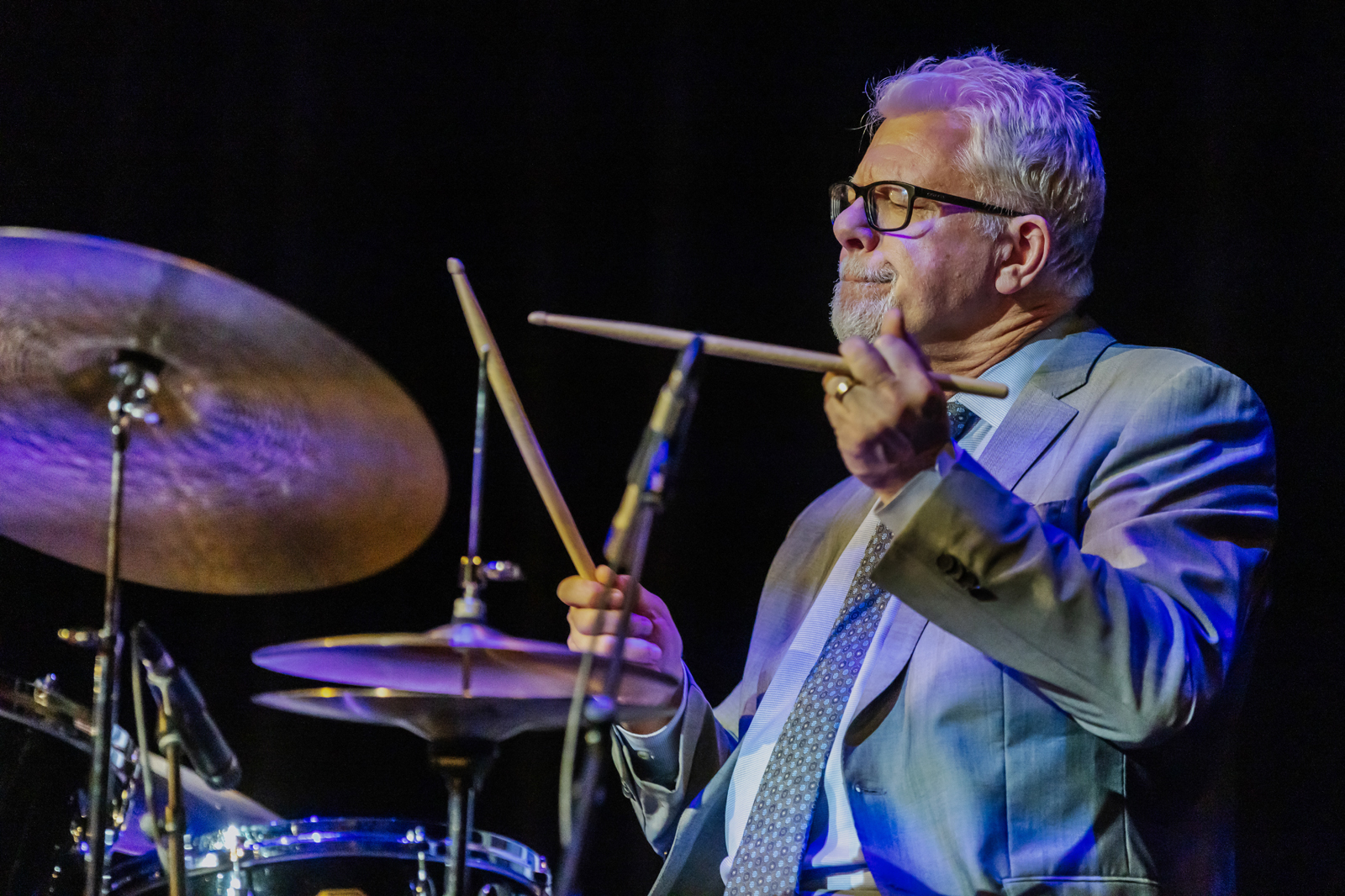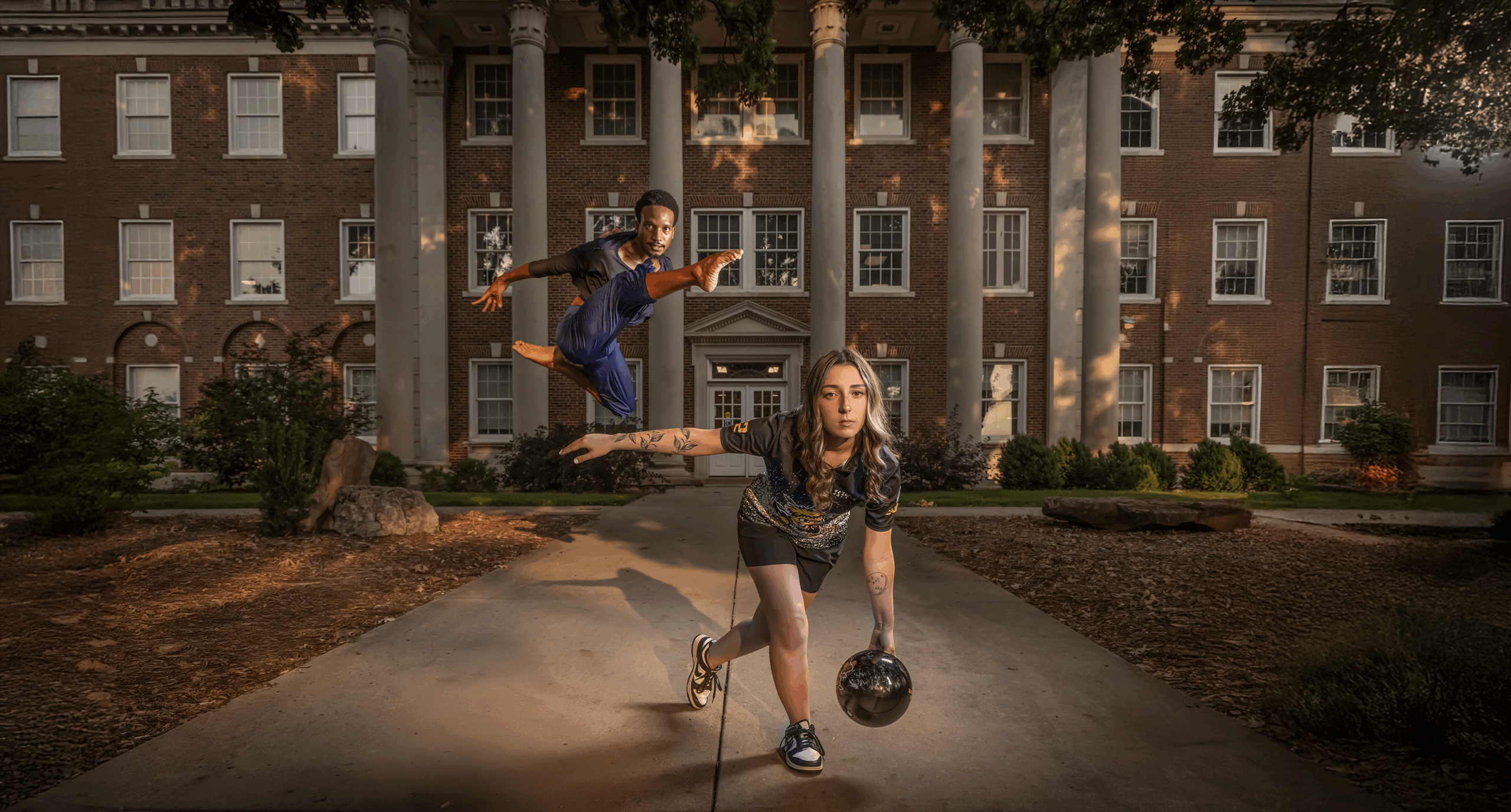Heartspring and WSU’s Cassat Clinic will be neighbors in Wichita’s downtown healthcare corridor

The Right Notes
The histories of Heartspring and Wichita State are so entwined, you can’t tell the story of one without the other.
This past March, those stories interlocked yet again with the partnership announcement that WSU health professions faculty and students will work on-site at Heartspring’s Pediatric Clinic to provide physical therapy and audiology services to the local community.
“This partnership,’” says Gregory Hand, dean of the WSU College of Health Professions, “has become a focal point for our faculty and students who specialize in pediatrics, particularly children with neurodevelopmental challenges.”
Heartspring, which currently operates its pediatric services near K-96 and Webb Road, provides diagnosis and clinical interventions for kids with a wide range of neurodevelopmental disorders, disabilities and delays, including ADHD and autism. WSU physical therapy student Clara Jackson, who has been working at the clinic with a child with autism, says, “Heartspring has made it possible for me to get hands-on experience and learn on-the-fly thinking to work toward this child’s goal of playing community soccer.”

Dan Soliday, Heartspring’s president and CEO, says “We continue to see a growing need for assessing children’s neurodevelopmental skills and providing individualized therapies. This partnership expands Heartspring’s ability to meet the region’s need for our specialty healthcare services.”
HEARTSPRING
“At Heartspring we coordinate multiple therapies to create one cohesive experience for our families with varying needs,” says Kara Gibson, clinical director for outpatient services. “We’re pleased to enhance our physical therapy and audiology services with ongoing student learning as part of Heartspring’s broader offering that includes occupational therapy, speech, language and feeding therapy, mental and behavioral health and applied behavior analysis.”
The healthcare nonprofit, which has operated at various Wichita locations through the years, is based at 8700 East 29th St. N. and has nearly 400 full-time employees, according to Wichita Business Journal (WBJ) data. Its pediatric clinic features a wheelchair-accessible treehouse and therapy playground as well as a fully equipped physical therapy gym and audiology suites. Providing clients the latest in evidence-based resources and care, the clinic offers a wide sweep of services — and has big plans for offering more.
In late August, Soliday announced via the WBJ that Heartspring will be expanding and moving its pediatric outpatient services to the northeast corner of Topeka Avenue and English, within downtown Wichita’s developing healthcare corridor. Plans project targeted occupancy for the new “cutting-edge, multi-clinic healthcare facility” within the next four to six years.
CASSAT CLINIC
The Evelyn Hendren Cassat Speech-Language-Hearing Clinic – located at Wichita State’s Hughes Metropolitan Complex, 5015 East 29th St. N. –provides speech-language services for speaking, hearing, swallowing, and spoken and written language impairments and offers programs and support groups for aphasia, autism, fluency, literacy and more. Audiology services include hearing evaluations, hearing aid fittings, repairs and maintenance, assistive listening devices, Bluetooth accessories and real ear measures.
A university-affiliated practice within the WSU College of Health Professions, the Cassat Clinic has provided services for individuals and families in the greater Wichita area for over 60 years. The clinic has gone by different names and been housed at various locations, including in Hubbard Hall, where Barbara Hodson (top photo at left), a communication sciences and disorders (CSD) professor and expert in phonology disorders, research and testing, was among the clinic’s staff in 1992.

Like Heartspring, the clinic has plans to move and, as early as 2027, will be open for service on the third-floor of the Wichita Biomedical Campus’ eight-story building now under construction downtown between 200 S. Broadway and 214 S. Topeka. A collaborative effort led by Wichita State, KU School of Medicine-Wichita and WSU Tech, the biomedical campus is spurring development in the city’s healthcare corridor.
LOGOPEDICS
Both the Cassat Clinic and Heartspring trace their origins back to 1934, specifically June 4, when Martin F. Palmer, a passionate and visionary scientist, was informed that President William Jardine had agreed to his ideas for starting a speech sciences program at the University of Wichita. With the purpose of studying and treating language and speech disorders, the program officially began in September with Palmer focusing on creating a sound financial base for WU’s developing department. The first substantial contribution was used to establish the Flo Brown Memorial Speech Laboratory in a single room on the fourth floor of the main administration building, Jardine Hall. The room served as office, classroom, research lab and speech clinic. In 1939, a building just off campus on the southwest corner of 17th Street and Fairmount became available to be remodeled as a speech clinic, and in 1940 the clinic was renamed the Institute of Logopedics, for logos (work) and pedia (children).
The 1940 Parnassus reports that the newly named institute was “recognized by the government as the foremost speech laboratory in the Middle West” and that “the present staff of 25 works with over 300 children,” using “every known form of speech equipment — from sound recording to photography,” all the while “endeavoring to coax science to return stolen birthrights to speechless children.” The institute was so highly regarded that it attracted attention from parents of special-needs children across the United States and even abroad. By 1945, it was an autonomous entity with its own board of trustees and in 1949 moved to a 40-acre complex on 21st Street several blocks west of the WU campus. At the time of Palmer’s death in 1965, the Institute of Logopedics was the largest institute of speech and hearing rehabilitation in the world – and Wichita State had awarded its first two doctoral degrees in logopedics. After years of being fiscally and physically inseparable, the institute and the department became separate entities during the early 1970s. In 1993, as the institute’s services continued to expand, its name was changed to Heartspring. Five years later Heartspring moved to a $14.25 million campus northeast of WSU’s main campus.
There’s a through-line in all that change. It’s the overarching sense of purpose and commitment articulated by Rosalind Scudder ’64/72/78, who was serving as chair of WSU’s CSD department in 1992: “Our mission is student education, and we work to provide the very best service we can to members in our community. We don’t compromise that at all.”



